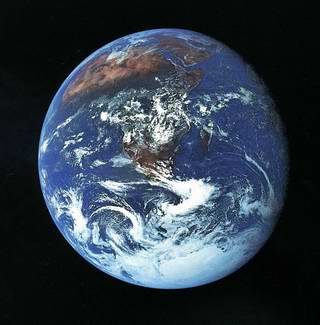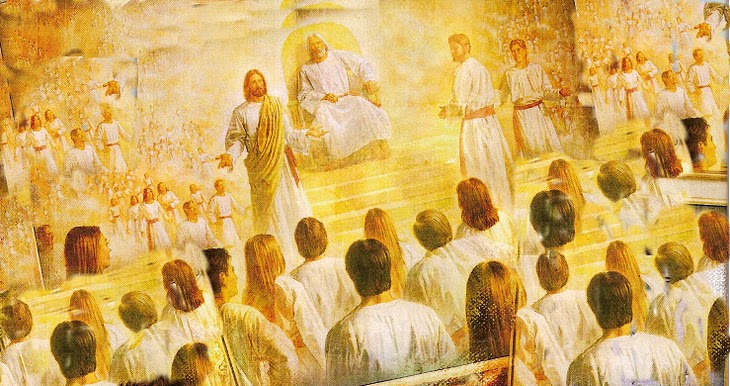Question
Gramps,
I understand that the Lord told Enoch He could look at all His creations and not find any so wicked. Are we sent here because we weren’t as righteous as those sent to other planets?
Shasta
Answer
Shasta,
Many members of The Church of Jesus Christ of Latter-day Saints ponder the reasons for our existence on Earth, especially in contrast to other worlds. A common question arises: Were we sent to this Earth because we weren’t as righteous as people on other planets?
According to Moses 7:36, this Earth is described as the most wicked of all worlds:
Wherefore, I can stretch forth mine hands and hold all the creations which I have made; and mine eye can pierce them also, and among all the workmanship of mine hands there has not been so great wickedness as among thy brethren.
This stark declaration emphasizes the unique challenges faced by humanity and the profound need for the Savior’s atonement in this world. The notion that Earth is the “most wicked” does not imply that those who inhabit it are less righteous than beings on other planets. Instead, it highlights the potential for great growth amidst significant trials and tribulations.
Despite the wickedness, it is crucial to recognize that some of the most righteous spirits inhabit this Earth. As stated in 2 Nephi 2:11, “For it must needs be, that there is an opposition in all things.” This principle suggests that righteousness exists alongside wickedness, indicating a balance. The Savior Himself chose to come to this Earth, emphasizing that it is a place where wickedness and righteousness coexist and significant spiritual growth can occur. Many members of the Church believe that among the spirits sent to Earth are individuals who possess remarkable faith and virtue, capable of influencing the world for good.
The doctrine of agency plays a crucial role in understanding our existence. Abraham 3:24-28 teaches that all spirits have agency to follow God’s plan. This agency is foundational to our mortal experience, allowing us to make choices that lead to growth and learning. The ability to choose between good and evil is essential to our development and our journey back to Heavenly Father. Each person’s journey is unique, shaped by the decisions they make and the paths they choose. The concept of agency also means that our righteousness is not predetermined by our origins; rather, it is cultivated through our choices and actions in this life.
The atonement of Jesus Christ is a central tenet of Latter-day Saint belief, applicable universally across all worlds. Doctrine and Covenants 76:24 states, “These are they who are redeemed of the Lord; yea, these are they who shall come forth in the resurrection of the just.” The atonement provides a path for redemption, allowing all souls, regardless of their past, the opportunity to return to God’s presence. This principle underscores the belief that everyone is given the chance to repent and grow, regardless of the wickedness that exists on Earth. The Savior’s role is central to all of God’s creations, reinforcing the idea that the potential for righteousness is always present, even in the most challenging circumstances.
Life on Earth is viewed as a testing ground for spirits, as summarized in Alma 42:4: “This life is the time for men to prepare to meet God.” The challenges and trials we face are integral to our spiritual progression. They provide us with opportunities to learn, repent, and grow, further solidifying our commitment to God’s plan. The experiences we undergo are designed to refine us, helping us to develop faith and character. The idea that we are here to learn and grow is a comforting thought, suggesting that our time on Earth serves a greater purpose in our eternal progression.
The teachings of prophets and the scriptures affirm that the plan of salvation encompasses all of God’s children. In Moses 1:35, the Lord indicates that the knowledge of His creations is limited to what is necessary for our salvation. This revelation implies that our experiences on Earth are divinely orchestrated and that the struggles we face have a significant purpose. Modern prophets, like Joseph Smith and current leaders of The Church, emphasize the importance of agency, growth, and the potential for redemption. Their teachings remind us that the journey we are on is part of a grander design, meant to lead us back to our Heavenly Father.
The belief that we were sent to Earth due to a lack of righteousness compared to beings on other planets is not supported by Church doctrine. Instead, we learn that this Earth, while the most wicked, is also home to some of the most righteous souls. Our existence here is a testament to our agency, the need for the atonement of Christ, and the purpose of mortal life as a testing ground. As we navigate our earthly journey, we can find hope in the teachings of the Gospel, knowing that our experiences contribute to our eternal progression.
Other related articles:
Were we born on this earth as punishment for bad deeds in the pre-mortal spirit world?
Why did the Savior live in mortality on this particular world?
What happens to the spirits of the planets that are destroyed?
Gramps







